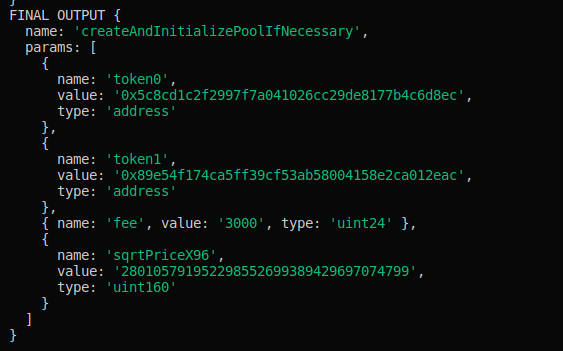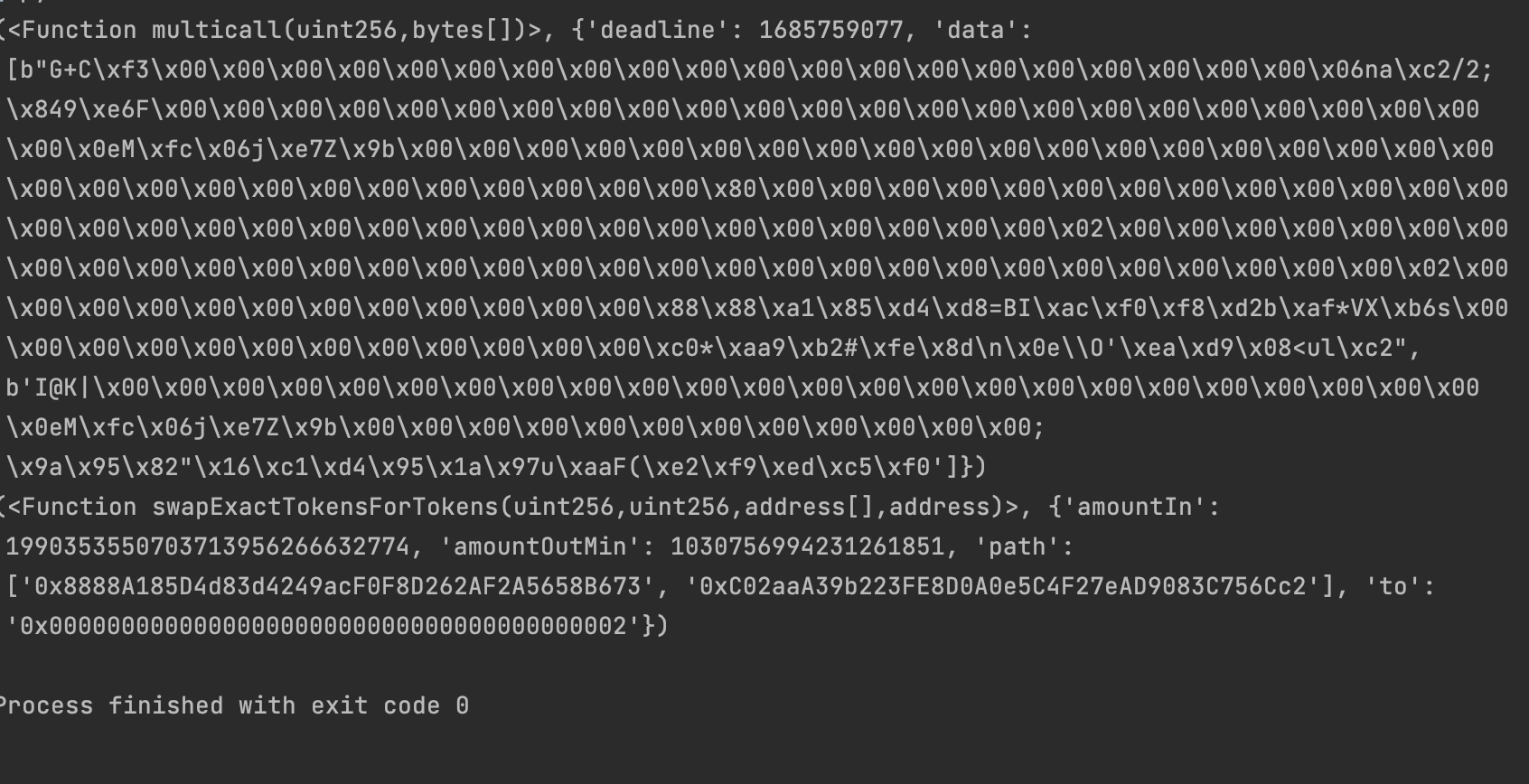I created a Uniswap V3 pool using UI. In Transaction multicall(bytes[] data) function was called with this parameter:
[0]: 0000000000000000000000000000000000000000000000000000000000000020
[1]: 0000000000000000000000000000000000000000000000000000000000000002
[2]: 0000000000000000000000000000000000000000000000000000000000000040
[3]: 0000000000000000000000000000000000000000000000000000000000000100
[4]: 0000000000000000000000000000000000000000000000000000000000000084
[5]: 13ead5620000000000000000000000005c8cd1c2f2997f7a041026cc29de8177
[6]: b4c6d8ec00000000000000000000000089e54f174ca5ff39cf53ab58004158e2
[7]: ca012eac00000000000000000000000000000000000000000000000000000000
[8]: 00000bb8000000000000000000000000000000000035f2482336c0d4c2ba6e94
[9]: faa1d66f00000000000000000000000000000000000000000000000000000000
[10]: 0000000000000000000000000000000000000000000000000000000000000164
[11]: 883164560000000000000000000000005c8cd1c2f2997f7a041026cc29de8177
[12]: b4c6d8ec00000000000000000000000089e54f174ca5ff39cf53ab58004158e2
[13]: ca012eac00000000000000000000000000000000000000000000000000000000
[14]: 00000bb8ffffffffffffffffffffffffffffffffffffffffffffffffffffffff
[15]: fff2764c00000000000000000000000000000000000000000000000000000000
[16]: 000a11a8000000000000000000000000000000000000000000000000000000e8
[17]: d4a510000000000000000000000000000000000000000000000a56d35c029fd1
[18]: 6645e079000000000000000000000000000000000000000000000000000000e8
[19]: 40308c030000000000000000000000000000000000000000000a503344abc0fb
[20]: e23670910000000000000000000000005a2b5cb4ce921abd65f0c66c2c839894
[21]: bfc2076c00000000000000000000000000000000000000000000000000000000
[22]: 6244356a00000000000000000000000000000000000000000000000000000000
This is how multicall function looks like:
function multicall(bytes[] calldata data) external payable override returns (bytes[] memory results) {
results = new bytes[](data.length);
for (uint256 i = 0; i < data.length; i++) {
(bool success, bytes memory result) = address(this).delegatecall(data[i]);
if (!success) {
// Next 5 lines from https://ethereum.stackexchange.com/a/83577
if (result.length < 68) revert();
assembly {
result := add(result, 0x04)
}
revert(abi.decode(result, (string)));
}
results[i] = result;
}
}
How to understand what methods (and parameters) were called here:
address(this).delegatecall(data[i])



